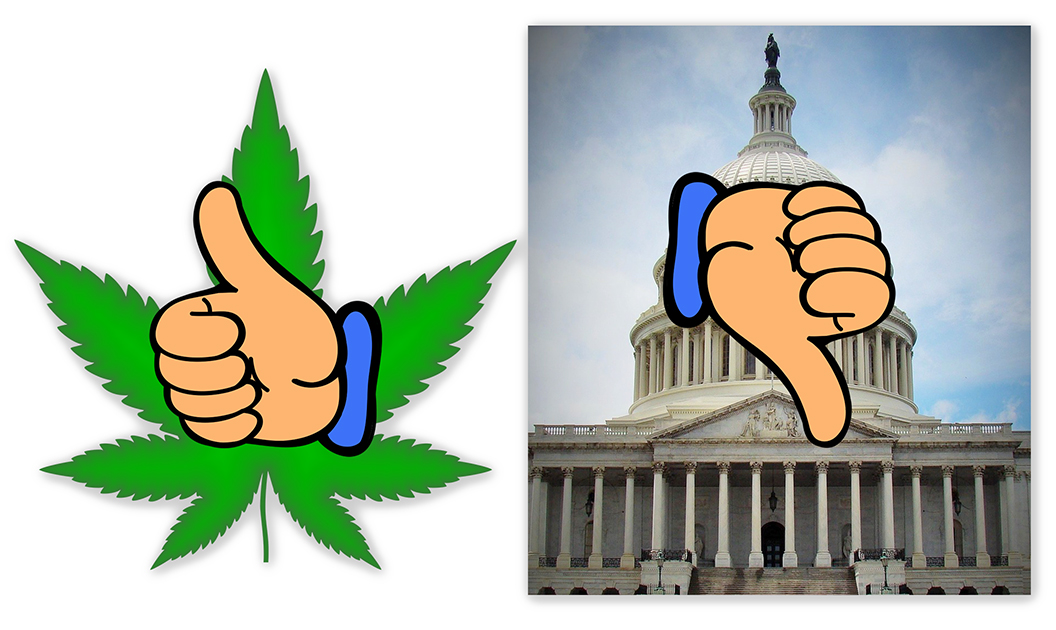We post news and comment on federal criminal justice issues, focused primarily on trial and post-conviction matters, legislative initiatives, and sentencing issues.
 Today (and not necessarily in honor of NASA’s long-awaited success in getting the Boeing Starliner to fly), a short rocket of some stories you might have missed.
Today (and not necessarily in honor of NASA’s long-awaited success in getting the Boeing Starliner to fly), a short rocket of some stories you might have missed.

OREGON LAWMAKERS WANT ANSWERS ON SHERIDAN
Six Oregon members of Congress wrote to BOP Director Colette Peters on May 24th about the “deeply concerning allegations made by the Department of Justice Office of the Inspector General regarding conditions at FCI Sheridan.”
 The letter, from Senators Ron Wyden and Jeff Merkley, and Representatives Val Hoyle, Earl Blumenauer, Andrea Salinas and Suzanne Bonamici (all Oregon Democrats), “demand[ed] swift action to address staffing shortages, inmate medical needs, and other alarming shortcomings placing staff and inmates at significant risk.”
The letter, from Senators Ron Wyden and Jeff Merkley, and Representatives Val Hoyle, Earl Blumenauer, Andrea Salinas and Suzanne Bonamici (all Oregon Democrats), “demand[ed] swift action to address staffing shortages, inmate medical needs, and other alarming shortcomings placing staff and inmates at significant risk.”
The letter noted that the report “raises new questions about FCI Sheridan’s certification as a Medical Care Level 2 institution. According to BOP regulations, Medical Care Level 2 institutions must be able to provide routine outpatient services to prisoners. However, DOJ OIG found inmates frequently could not get timely outpatient care.”
The lawmakers posited 15 questions about staff shortages, medical care, RDAP and security on which a BOP response is sought.
Letter from Sen Ron Wyden and others to Colette Peters (May 24, 2024)
WELL, THIS IS A SURPRISE…
A national study performed by a collaboration between the University of California at Irvine and Brigham and Women’s Hospital found that at the peak of the COVID pandemic in 2020, people inside prisons died almost three and a half times more frequently than the free population.
 Over 6,000 incarcerated people died in the first year of the pandemic, researchers found, using numbers they collected from state prison systems and the BOP. A Marshall Project analysis of data the researchers released shows the prison mortality in the BOP increased by 41% between 2019 and 2020.
Over 6,000 incarcerated people died in the first year of the pandemic, researchers found, using numbers they collected from state prison systems and the BOP. A Marshall Project analysis of data the researchers released shows the prison mortality in the BOP increased by 41% between 2019 and 2020.
At the same time, incarceration rates dropped during the first year of the pandemic, but not because an extraordinary number of people were released. Instead, data show that fewer people than in a typical year were let out in 2020. According to The Marshall Project, the reduction in population was due to a dramatic reduction in prison admissions.
The study warned that death rate spikes “in 2020 probably underestimate the true rise in death rates, since many prison populations fell as the year went on.”
Marshall Project, Officials Failed to Act When COVID Hit Prisons. A New Study Shows the Deadly Cost (April 18, 2024)
Science Advances, Excess mortality in U.S. prisons during the COVID-19 pandemic (Dec 1, 2023)
DEPENDS ON WHOSE OX IS BEING GORED
Less than a week after the DOJ OIG issued a scathing report on the BOP’s operation at FCI Sheridan—which incidentally included a finding that the facility kept lousy records on inmate-to-inmate sexual abuse—BOP Director Colette Peters found the time and inclination to praise a May 14th sentencing of an unnamed federal inmate for having masturbated in front of a BOP employee.
It seems that on May 14, 2024, U.S. District Judge Iain D. Johnston of the Northern District of Illinois hammered a USP Thomson prisoner with a 364-day consecutive sentence under the Assimilative Crimes Act for violating an Illinois disorderly conduct statute by… well, you know… in front of a correctional officer.
 Director Peters expressed “strong support” for this decision, with the BOP PR flack quoting her as saying “This sentencing is a clear message that misconduct, particularly actions that threaten the safety and integrity of our institutions, will not be tolerated. We stand resolute in our mission to foster a humane and secure environment and protect our employees and incarcerated people from any form of sexual harassment and assault.”
Director Peters expressed “strong support” for this decision, with the BOP PR flack quoting her as saying “This sentencing is a clear message that misconduct, particularly actions that threaten the safety and integrity of our institutions, will not be tolerated. We stand resolute in our mission to foster a humane and secure environment and protect our employees and incarcerated people from any form of sexual harassment and assault.”
Tough words, which makes it all the more surprising that the Director failed to send a “clear message” to her 36,000 underlings about the mess at FCI Sheridan or, for that matter, the announcement two days later that a former correctional officer at FCI Milan had been charged with the felony of having sex with a prisoner and smuggling contraband into the facility.
Fortunately for Peters, the PR task was covered by Eastern District of Michigan US Attorney Dawn Ison, who said:
Every day, federal corrections officers display uncompromising integrity in carrying out their duties and maintaining the safety and security of our federal prisons. Unfortunately, the allegations in today’s indictment reflect a failure on the part of one corrections officer to maintain that standard. Sexual misconduct by prison officials compromises the safety and security of the whole institution and is completely unacceptable at Milan or any other correctional facility.
When a single inmate commits a misdemeanor, the Director is Jenny-on-the-spot to denounce what is otherwise a pedestrian (if disgusting) offense. But with over a dozen cases of BOP employees being charged with or convicted of sex offenses against inmates in the last year, you’d think that Ms. Peters would issue a press release on that, or at least that a government official’s comment could drop the “display uncompromising integrity” blather.
BOP, Director Peters Commends Sentencing (May 28, 2024)
Ann Arbor News, Former federal prison guard charged for having sex with prisoner, smuggling in contraband (May 30, 2024)
– Thomas L. Root










